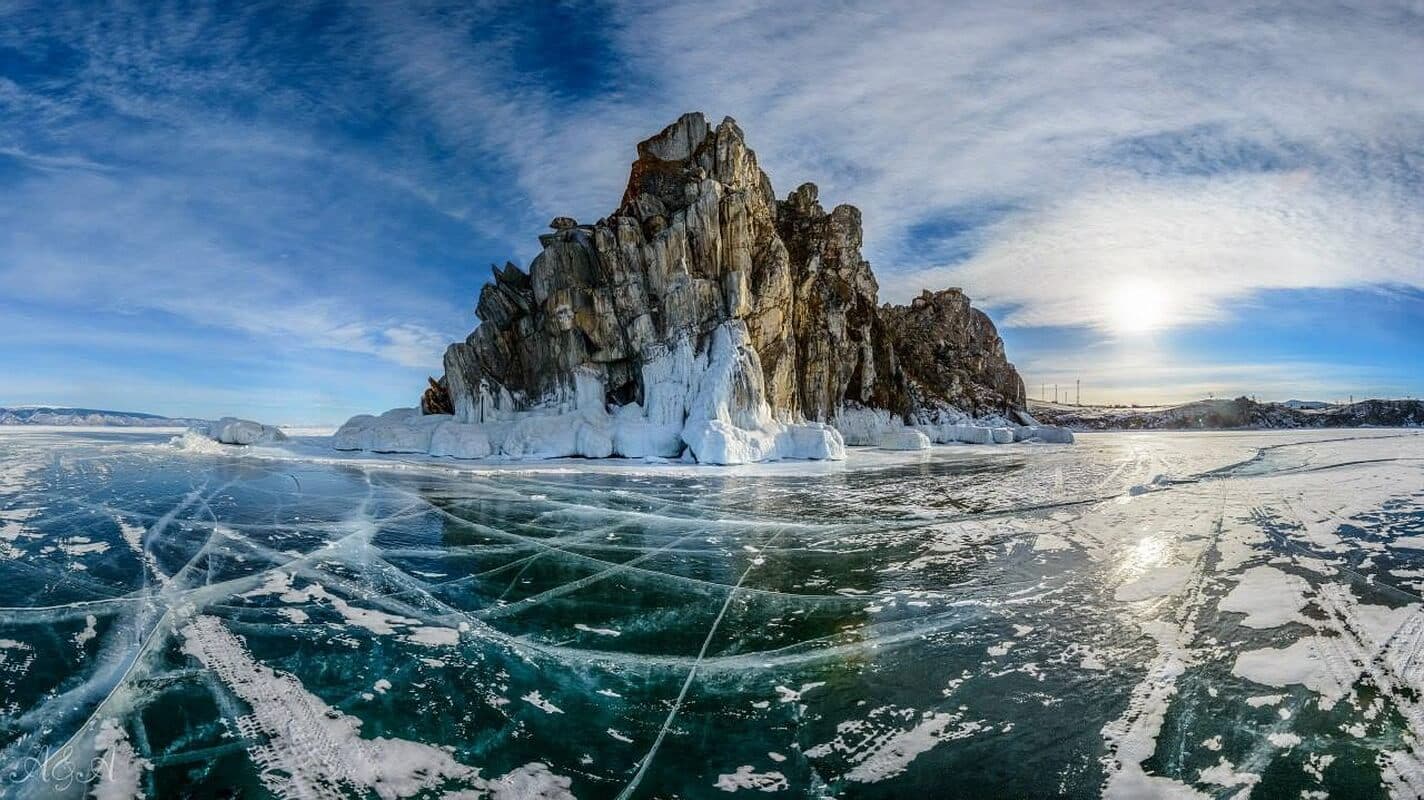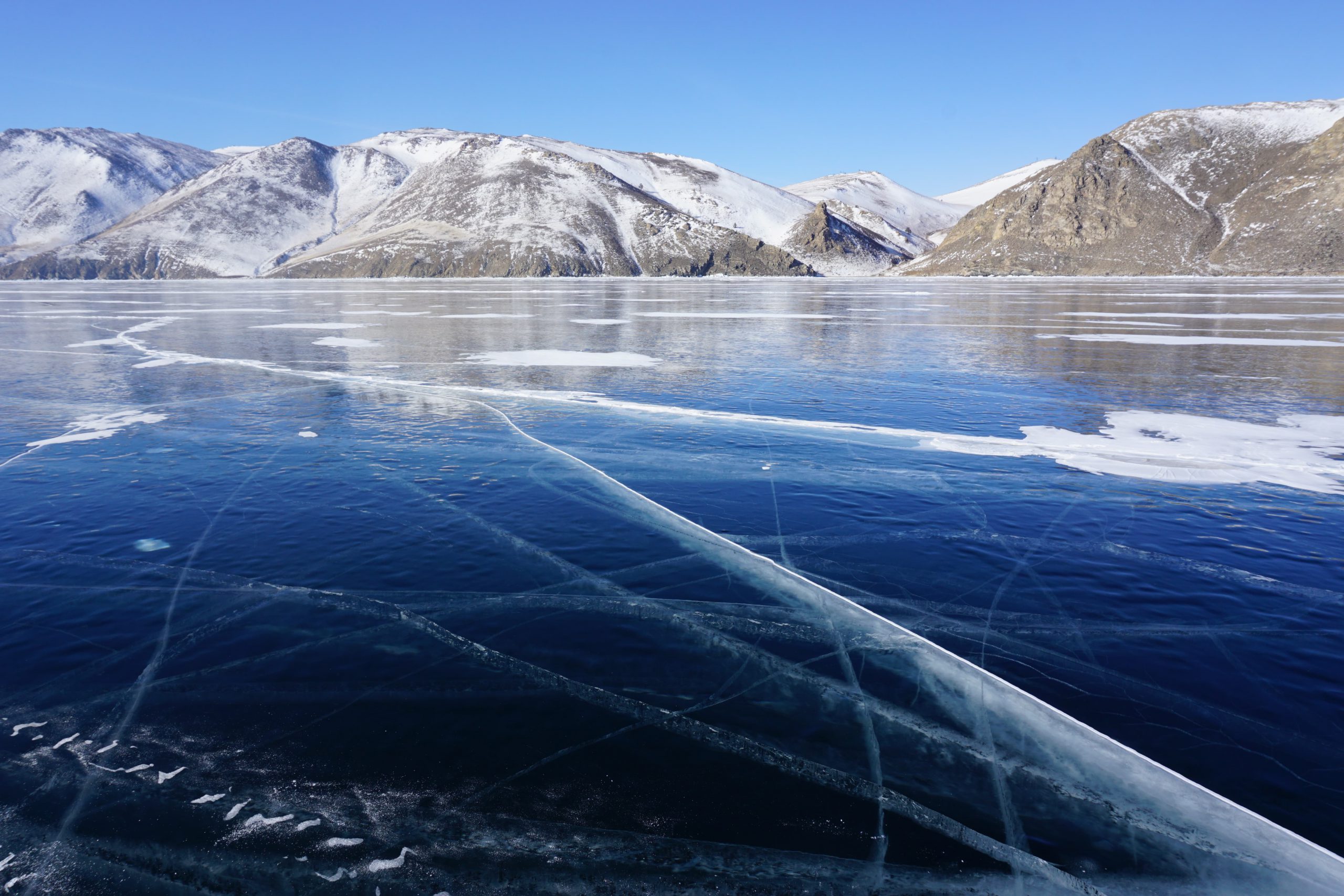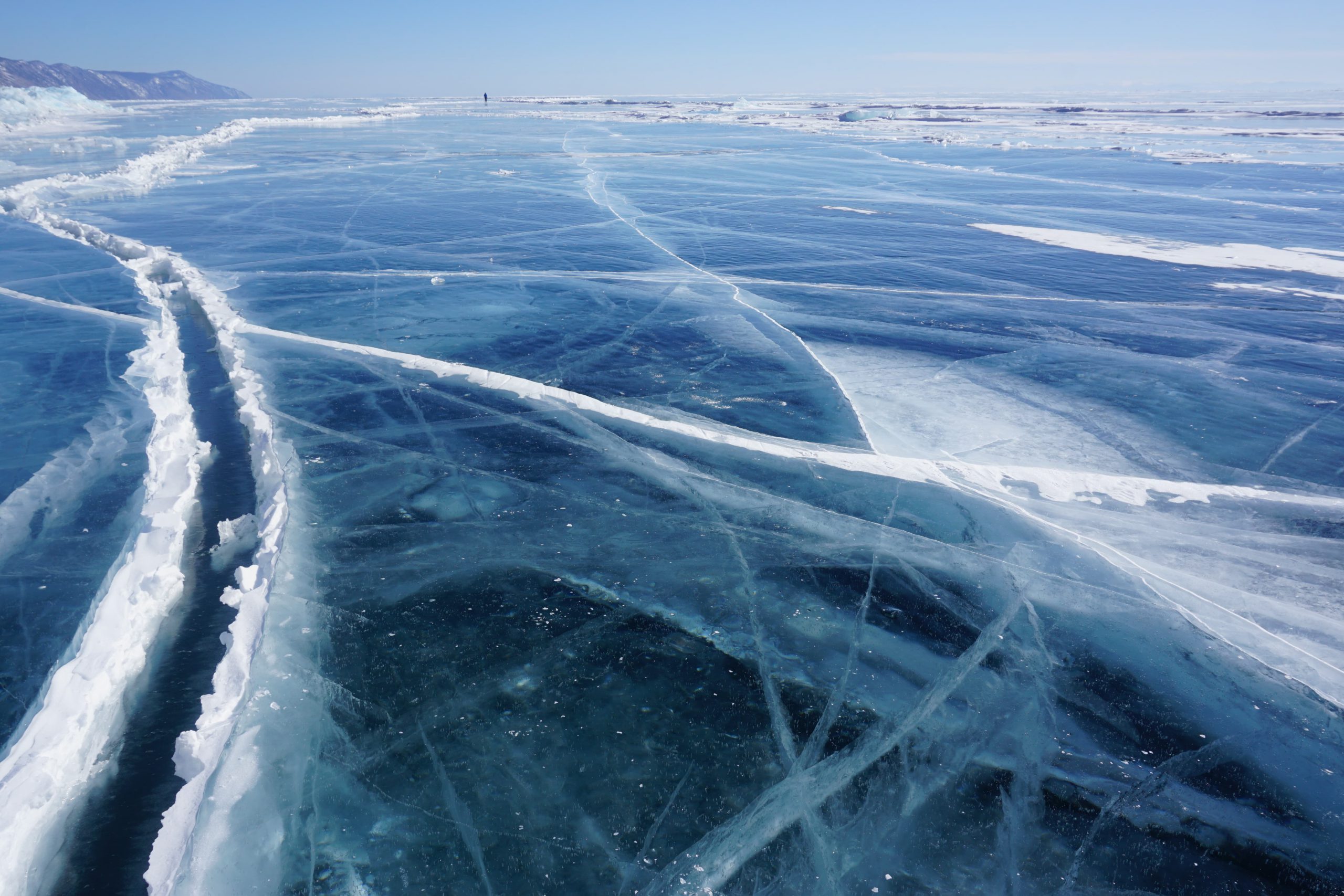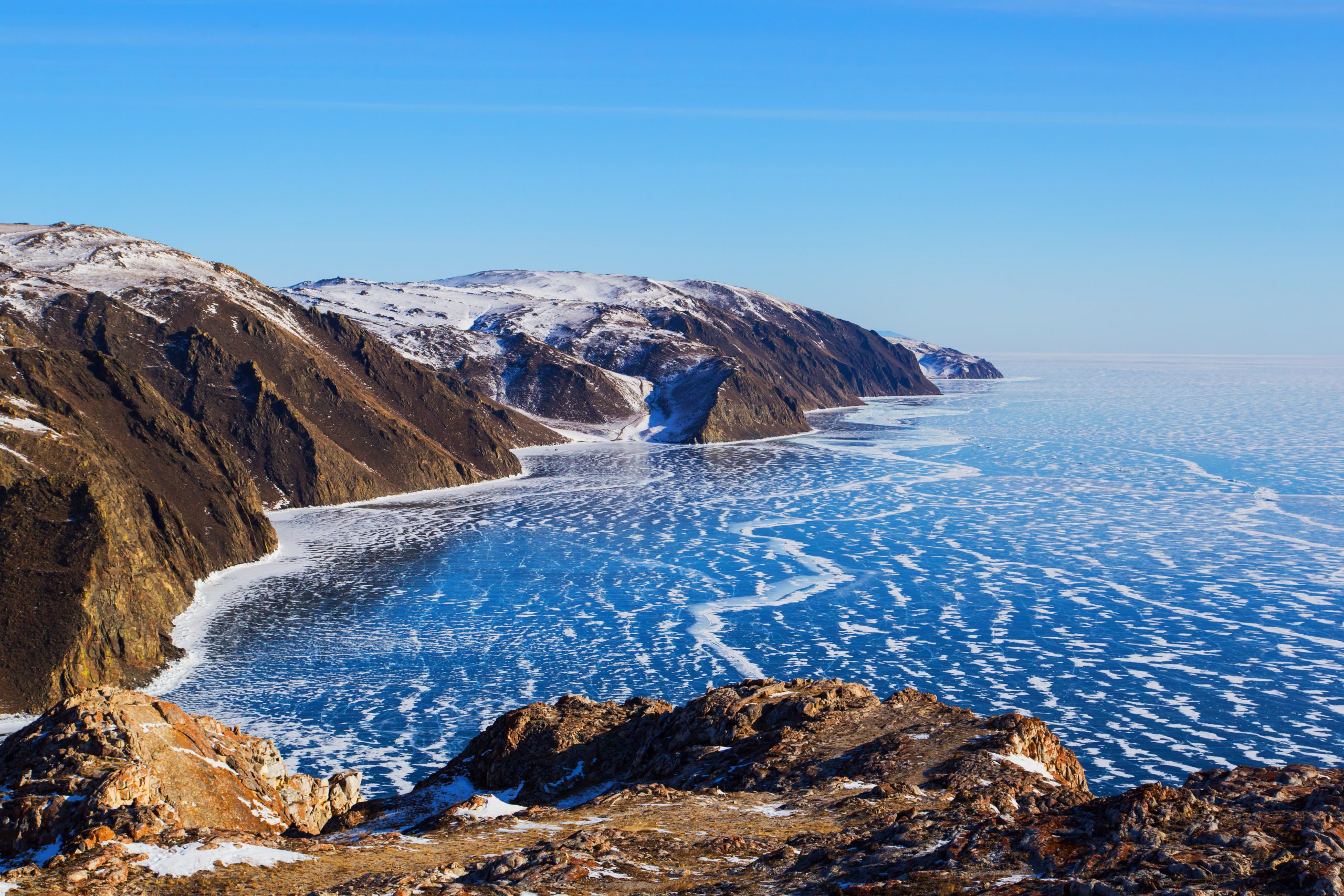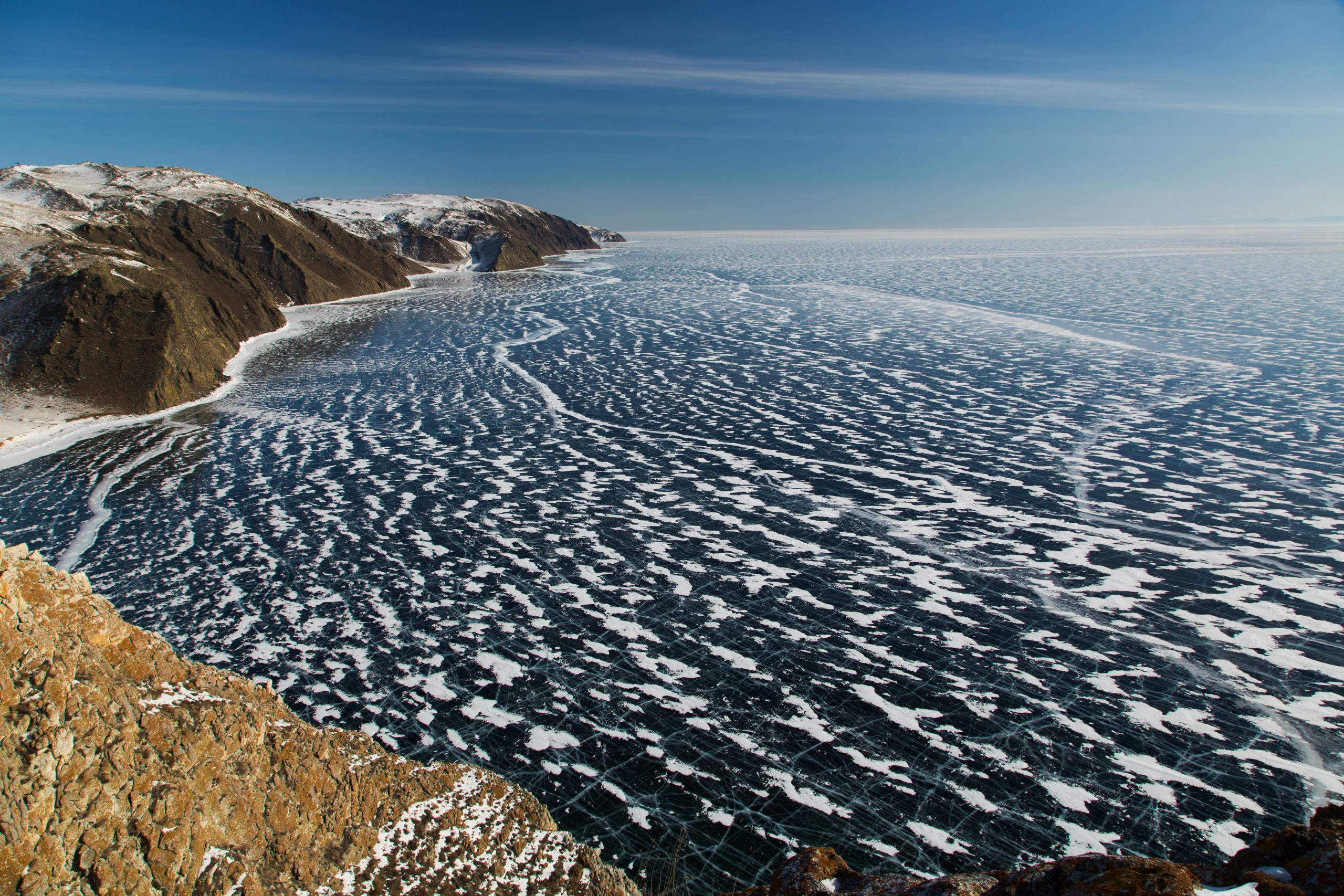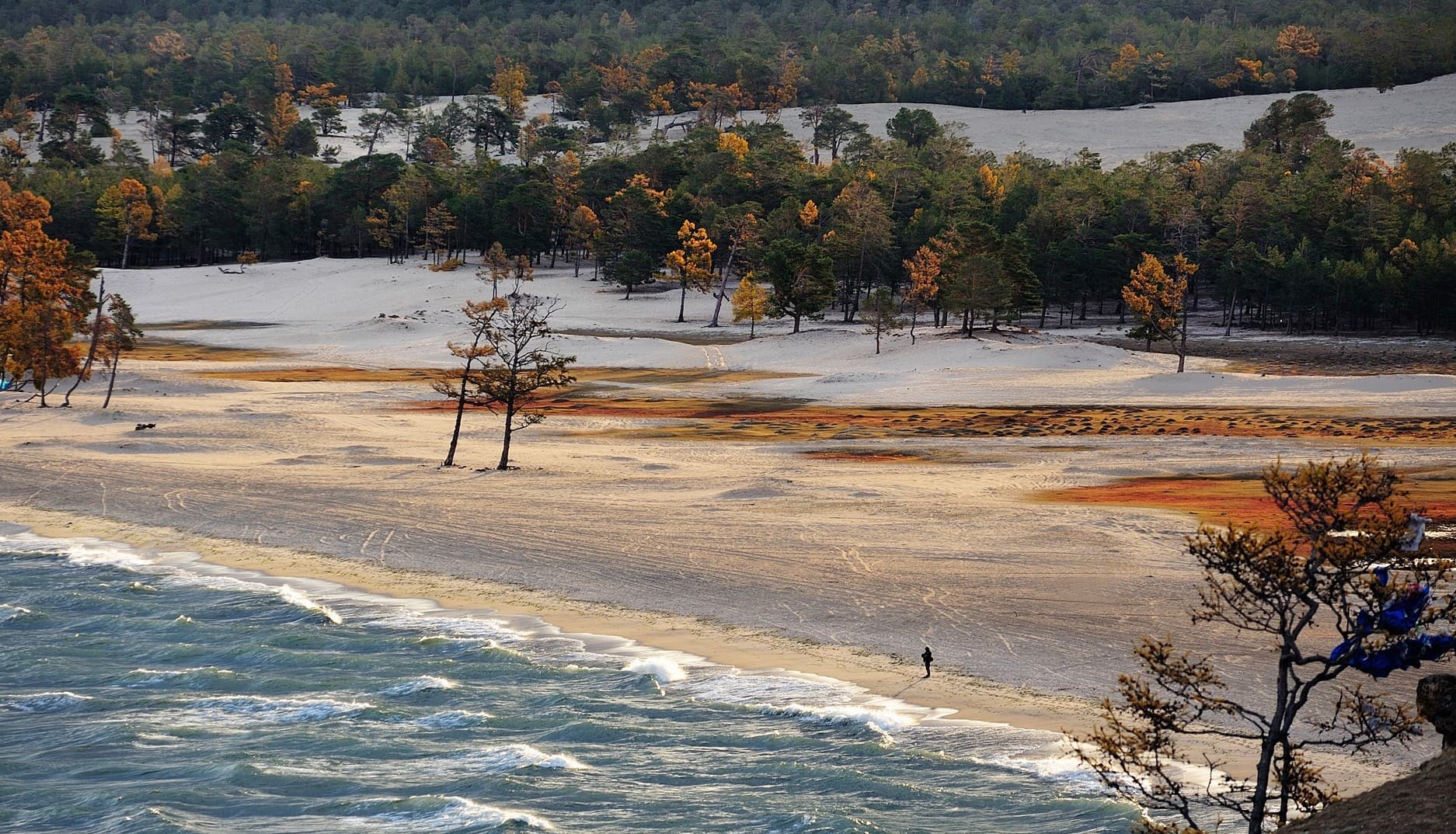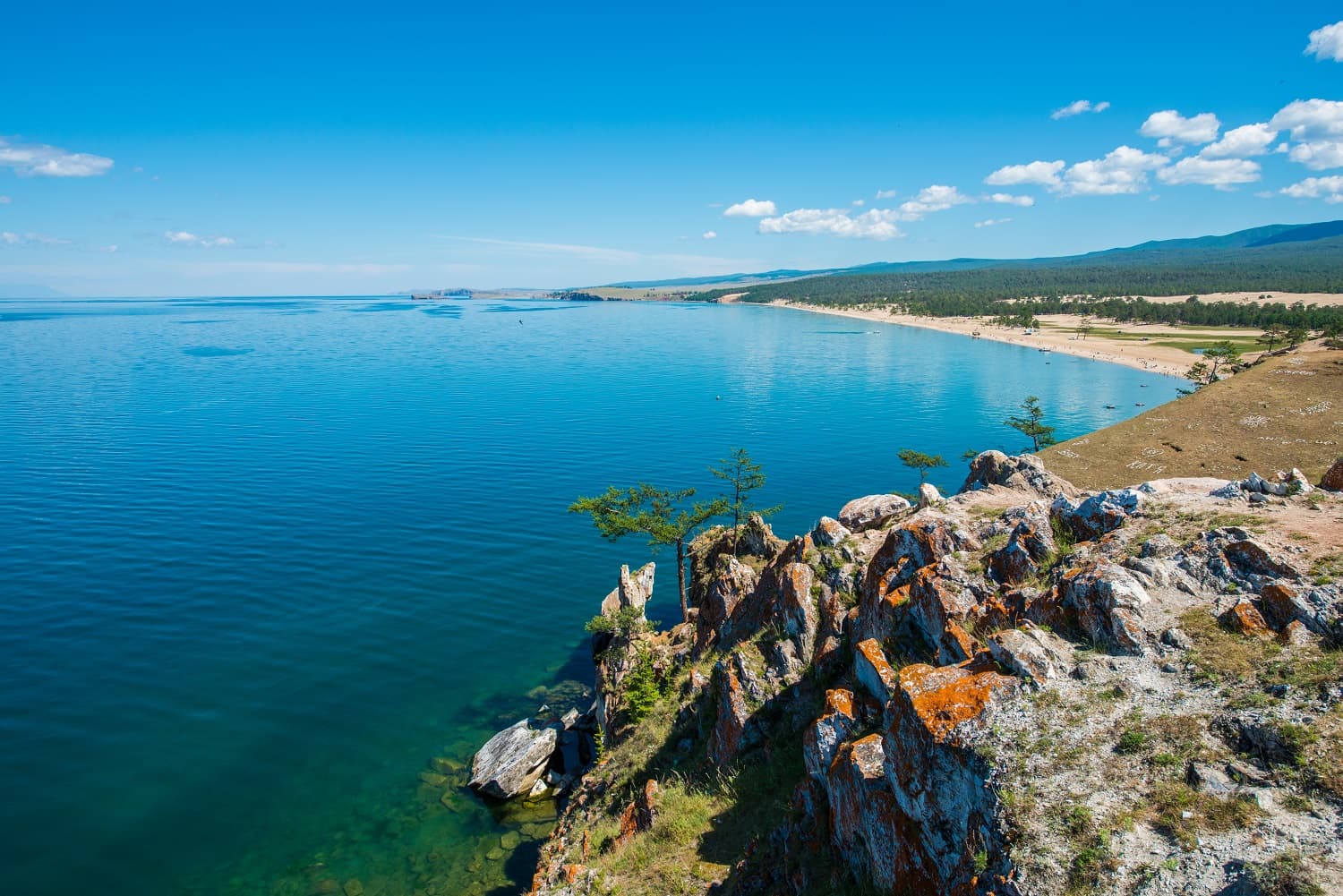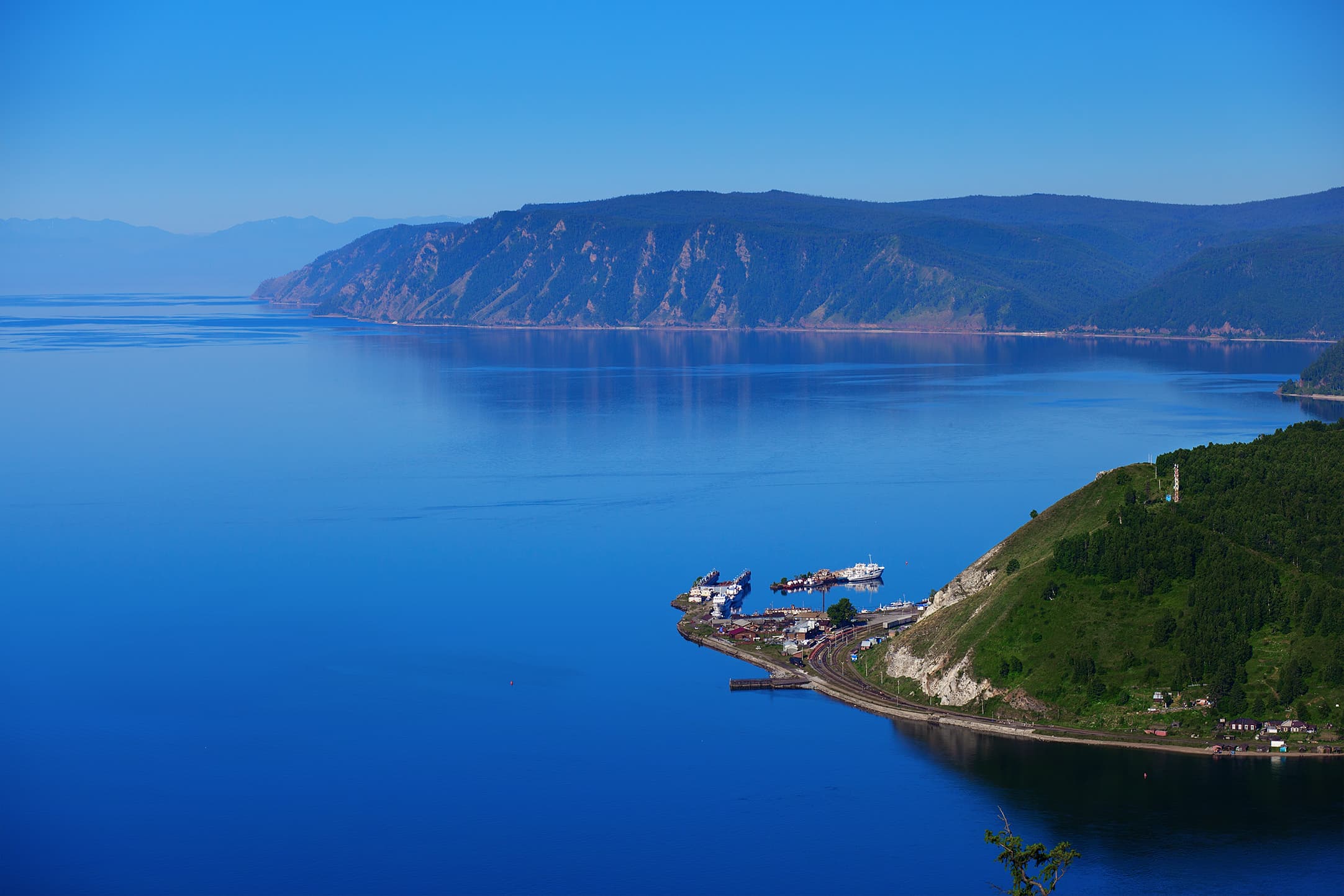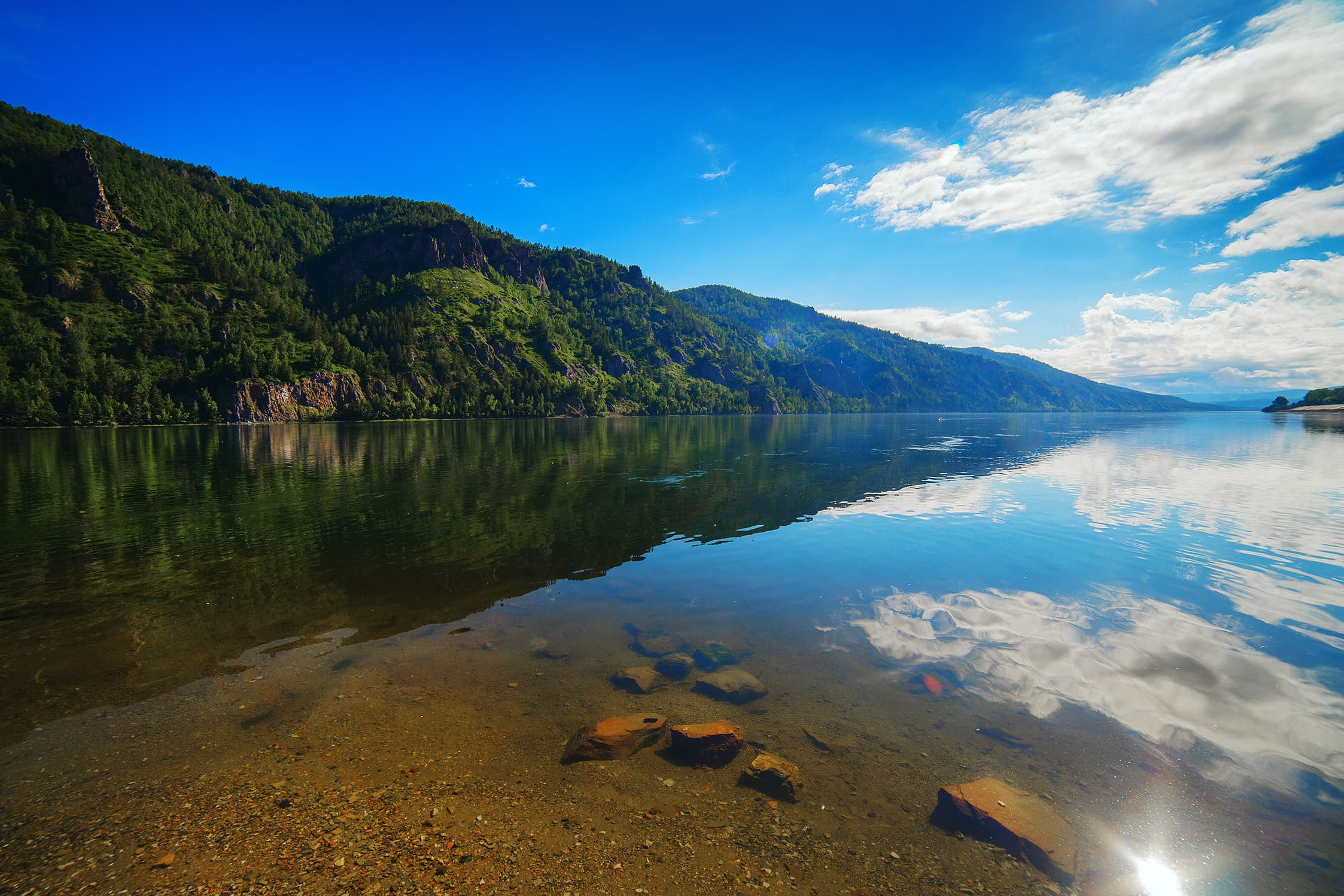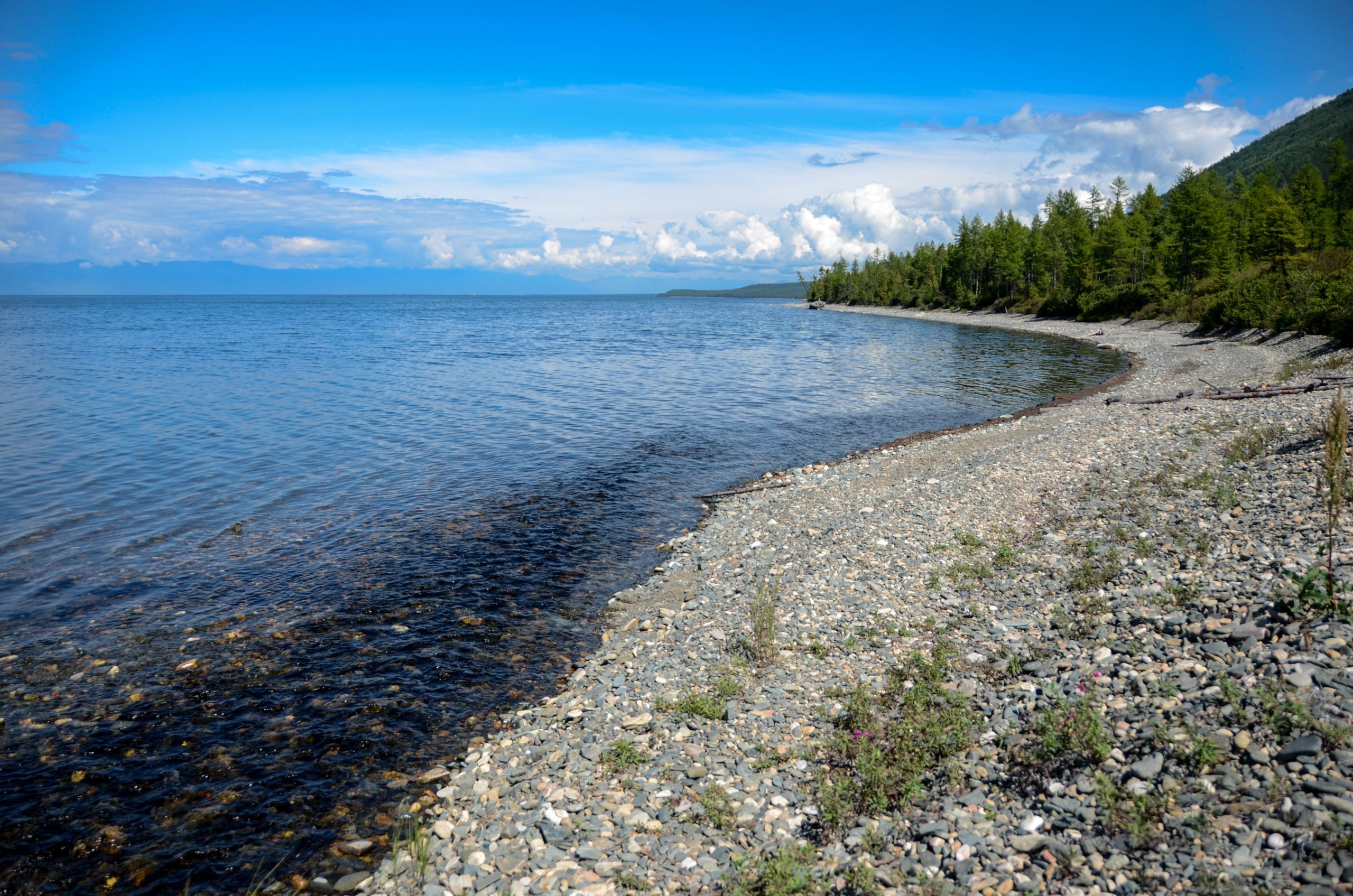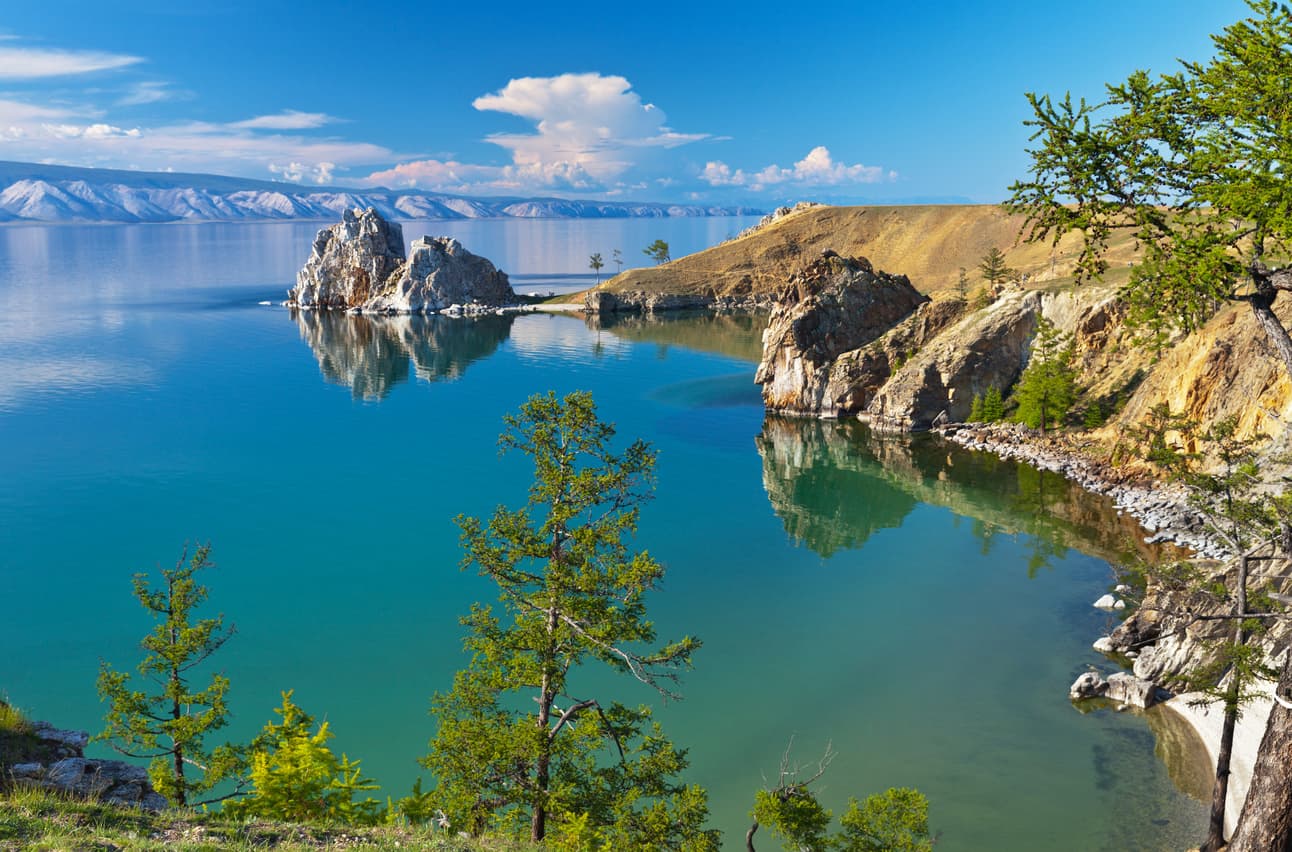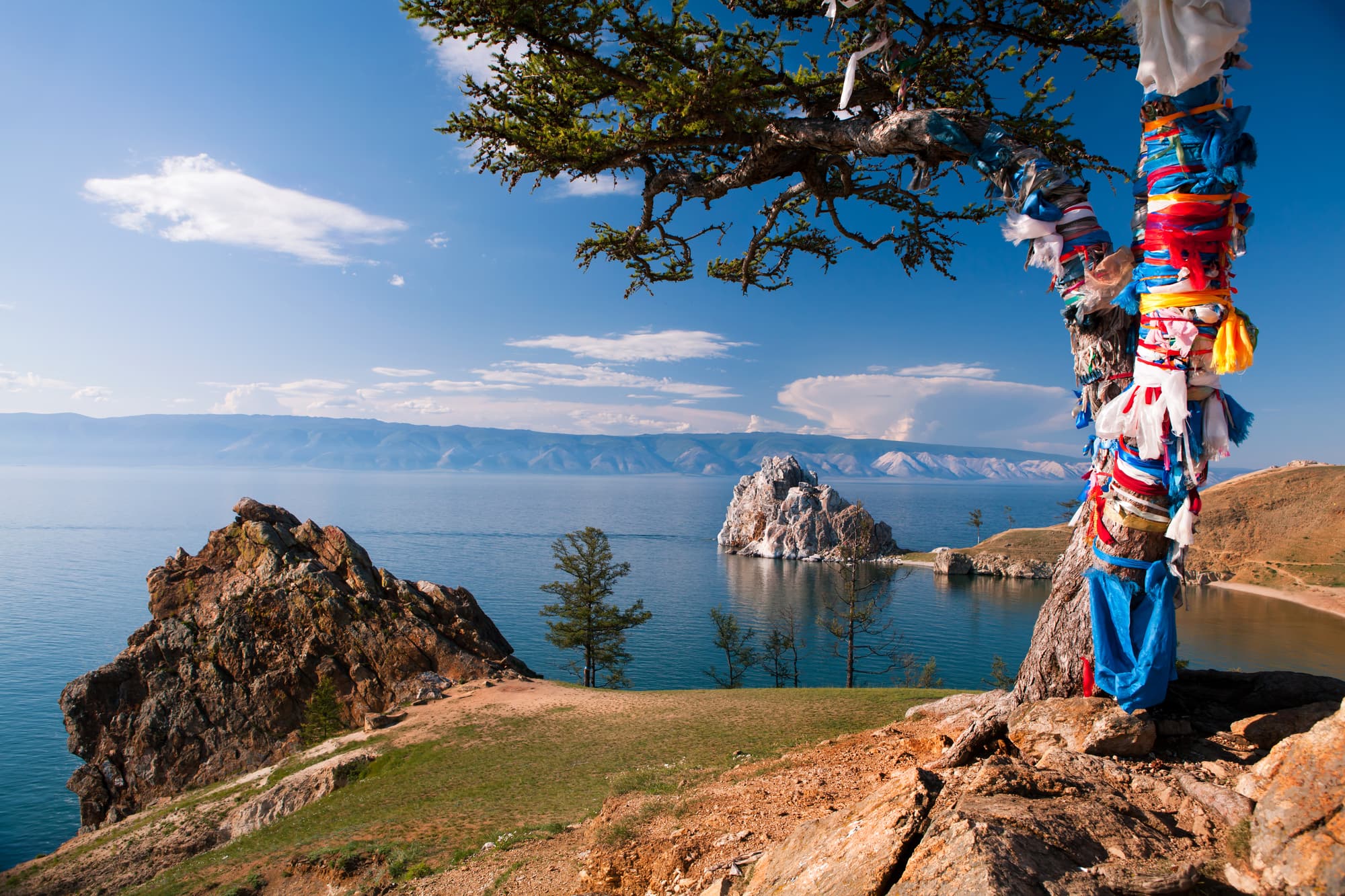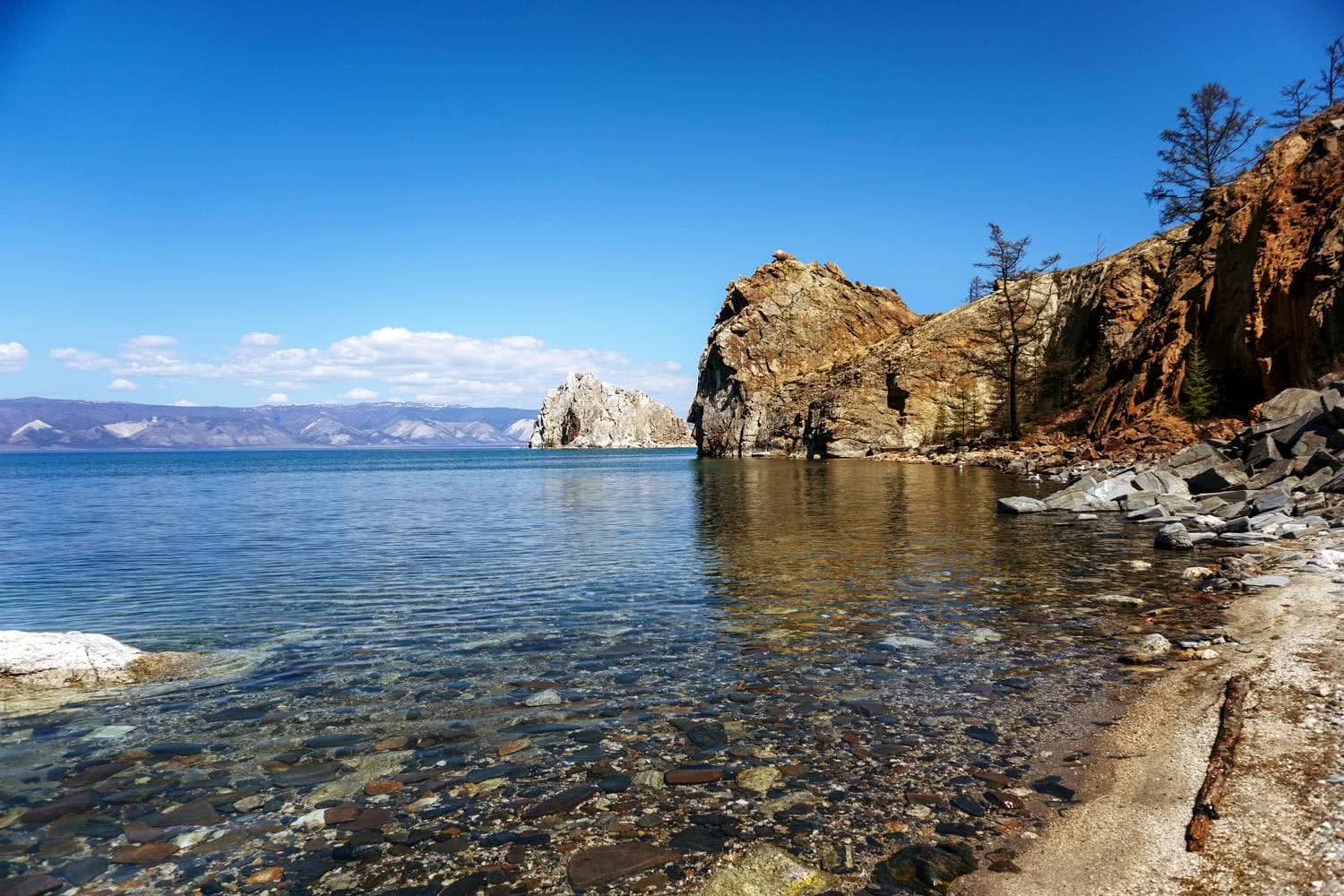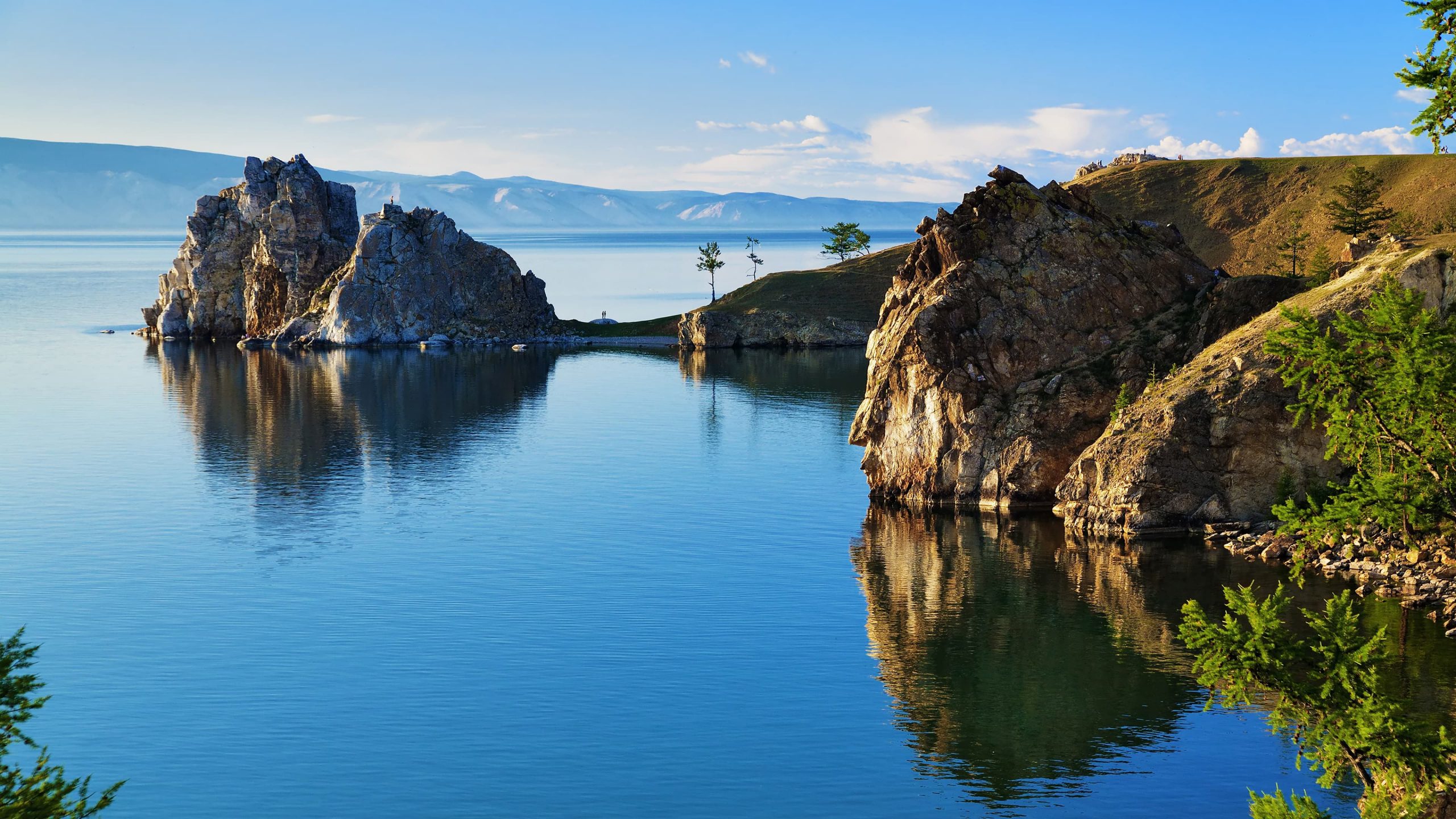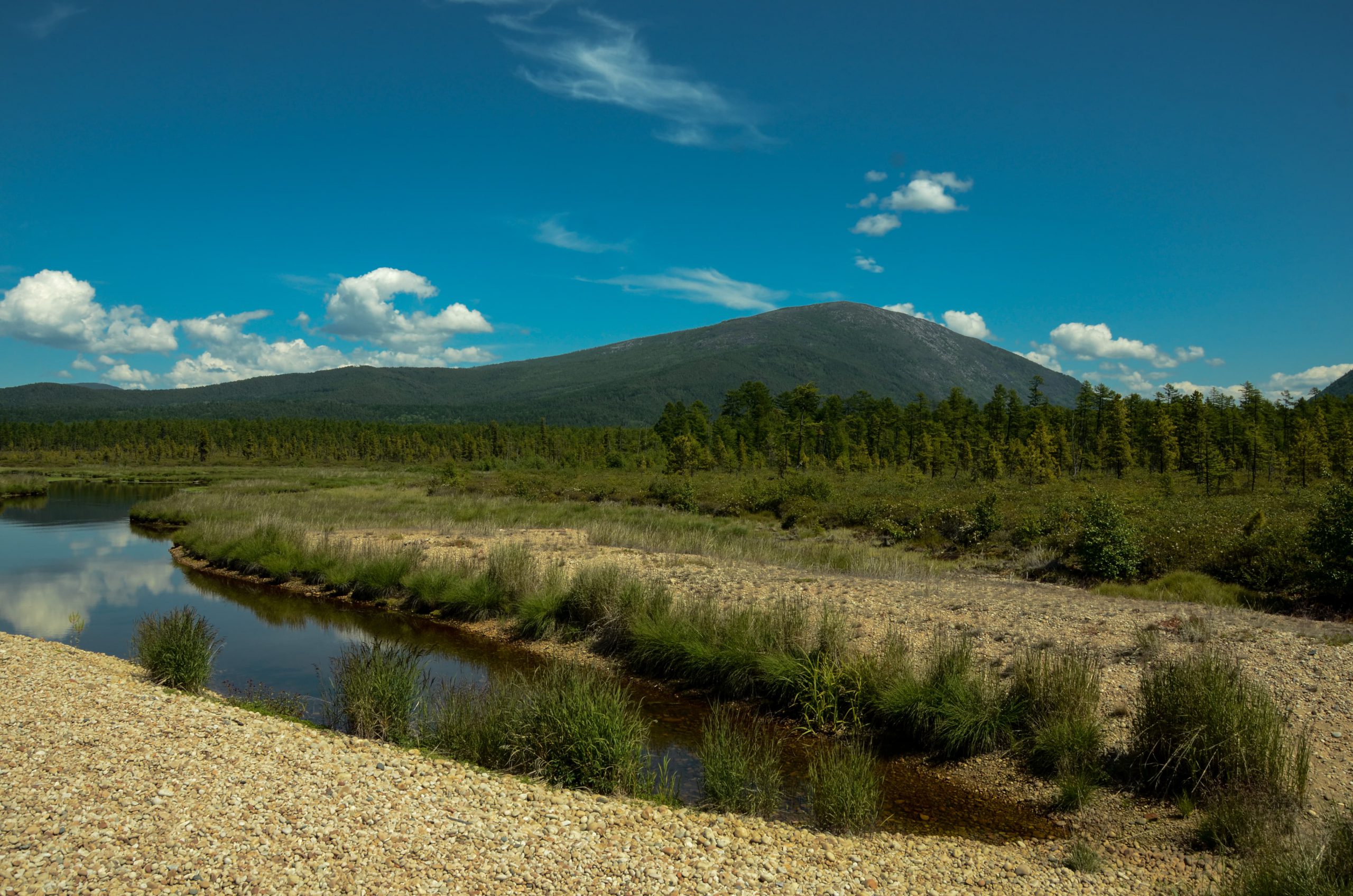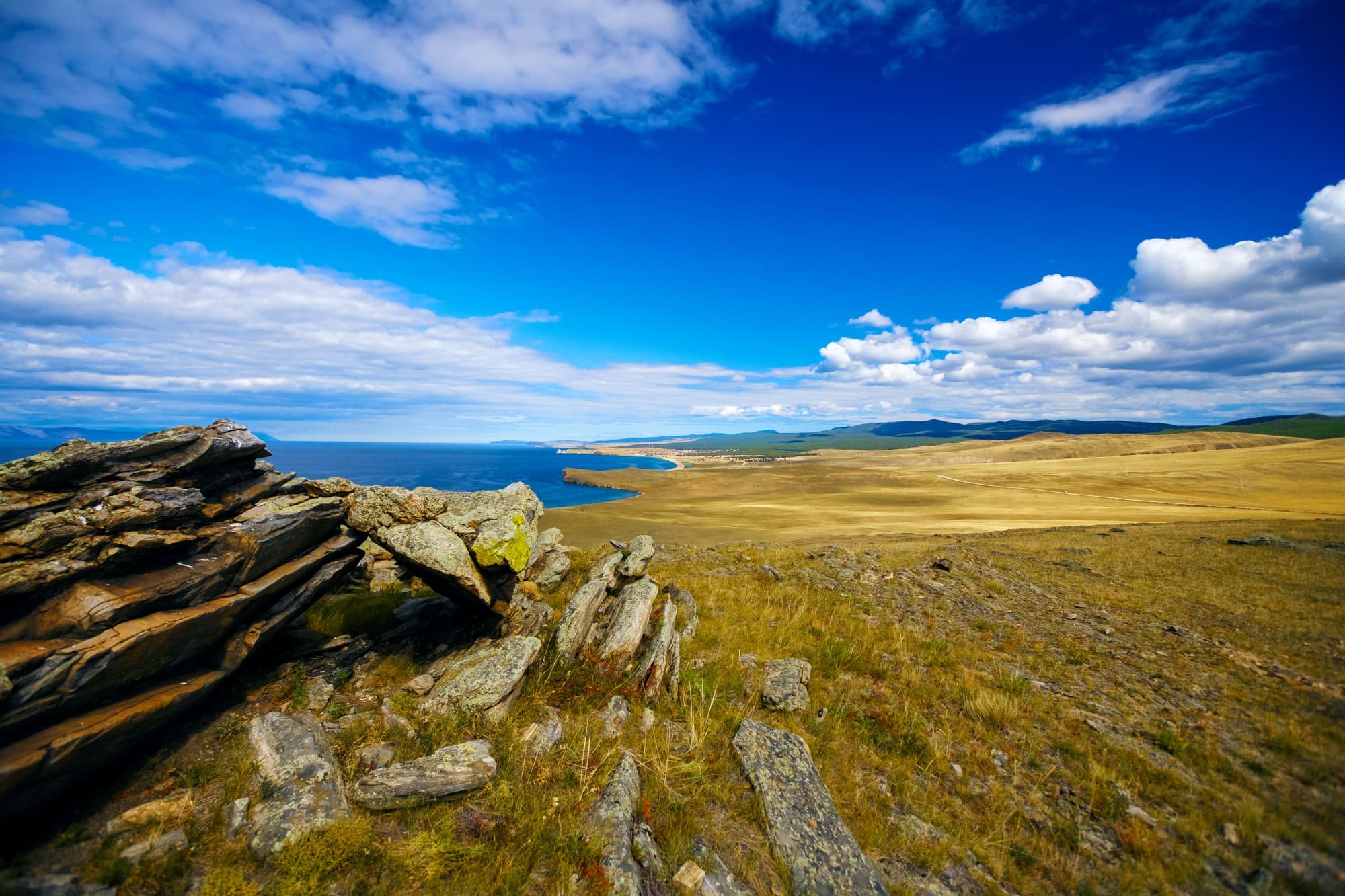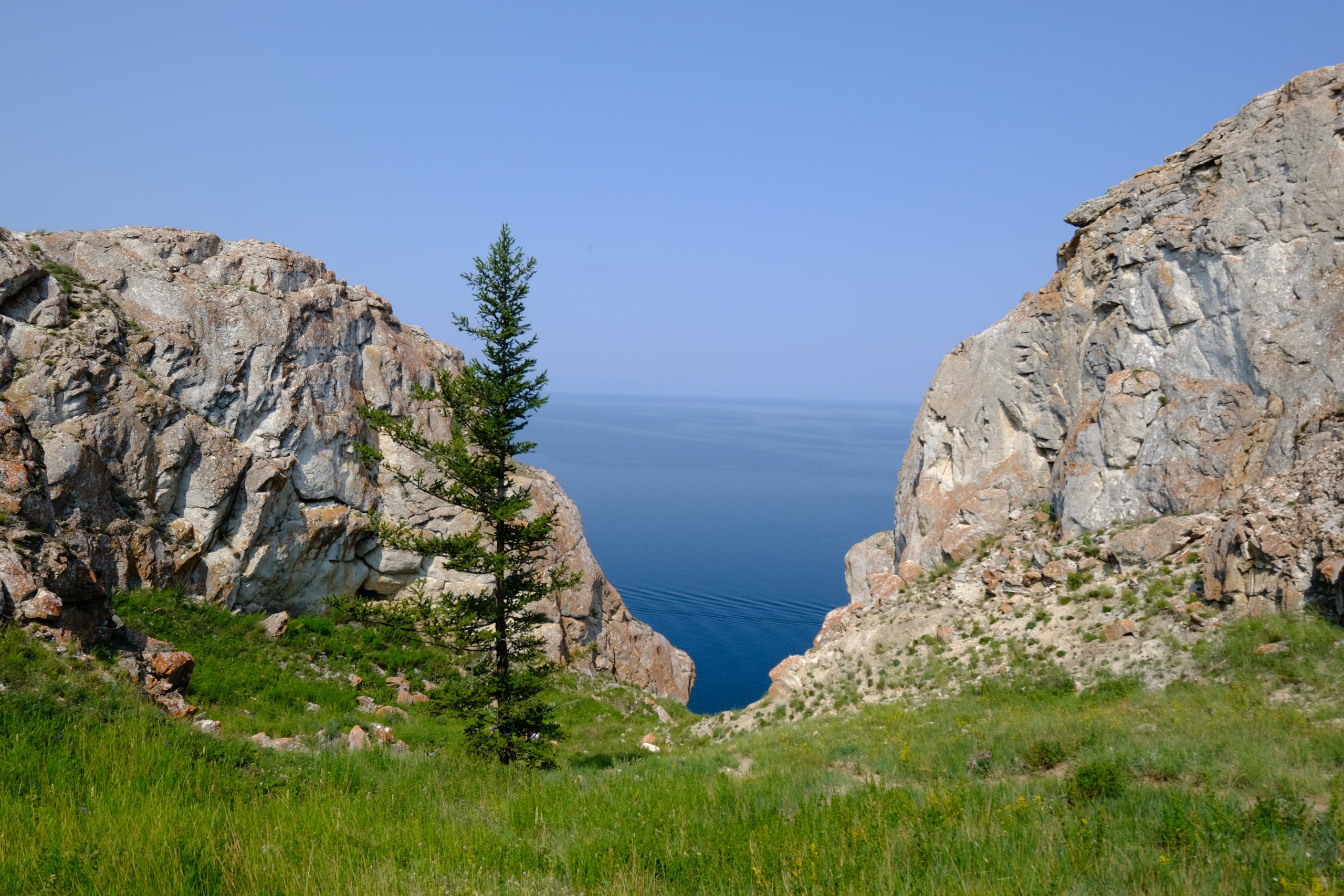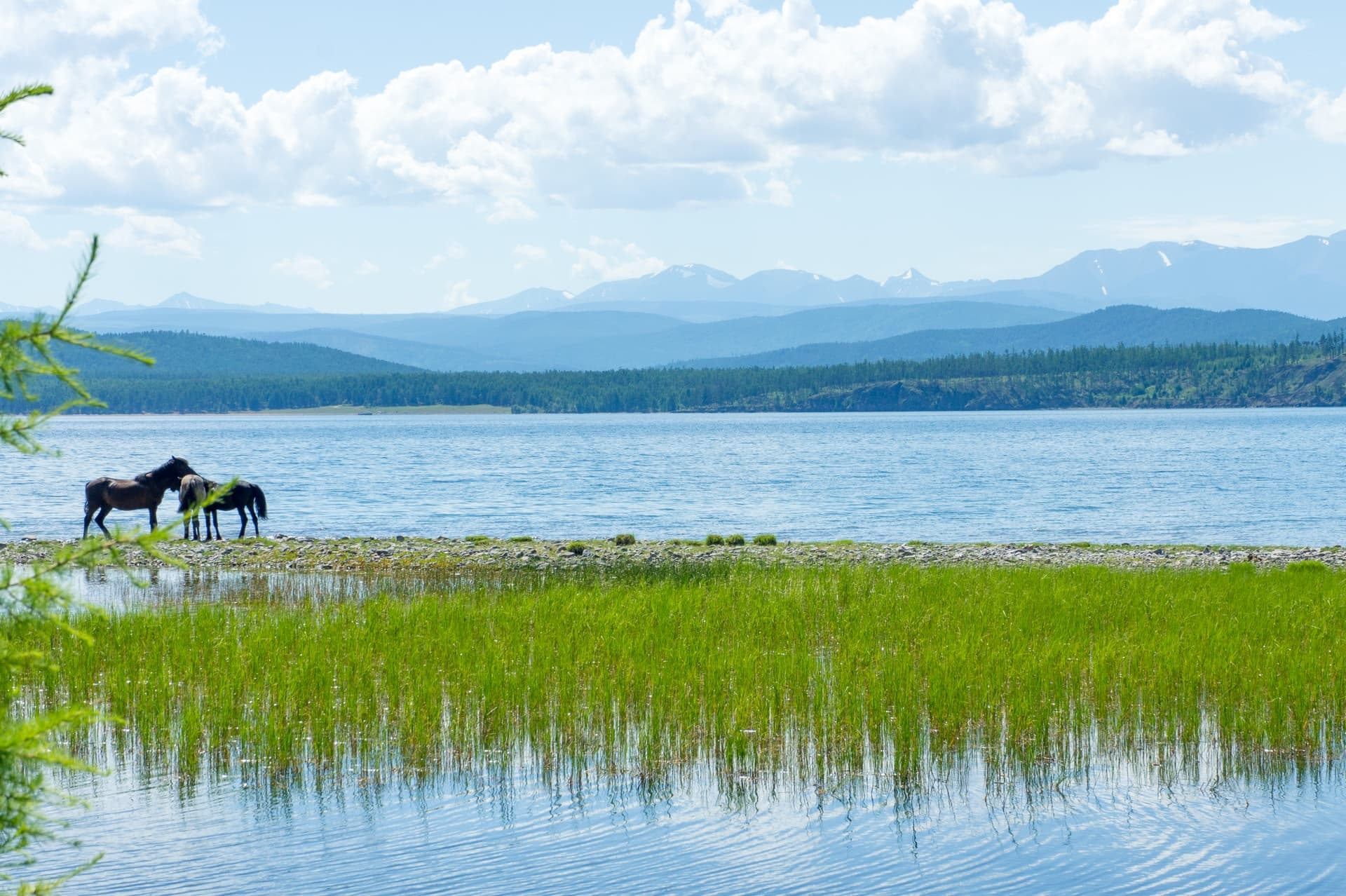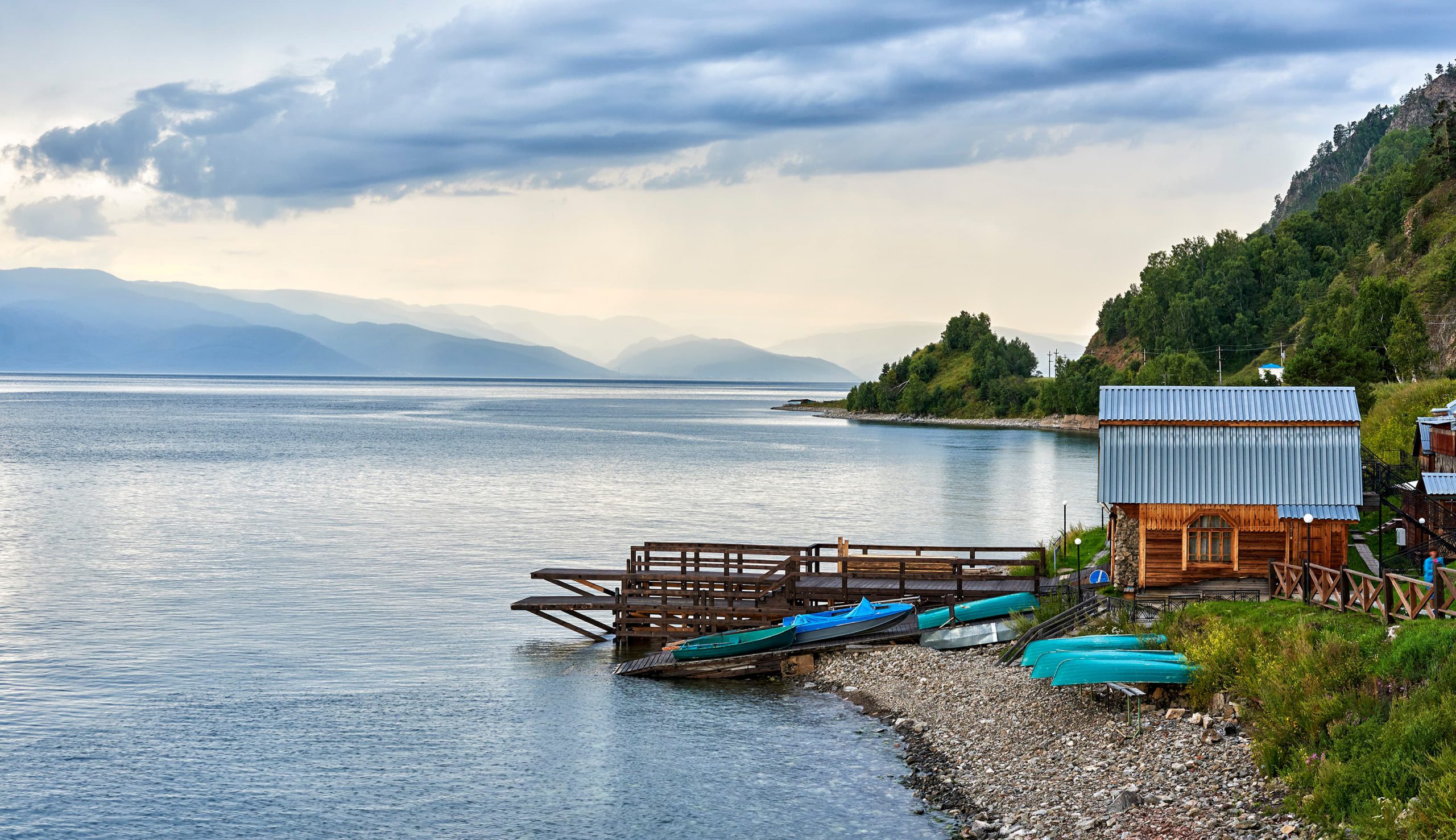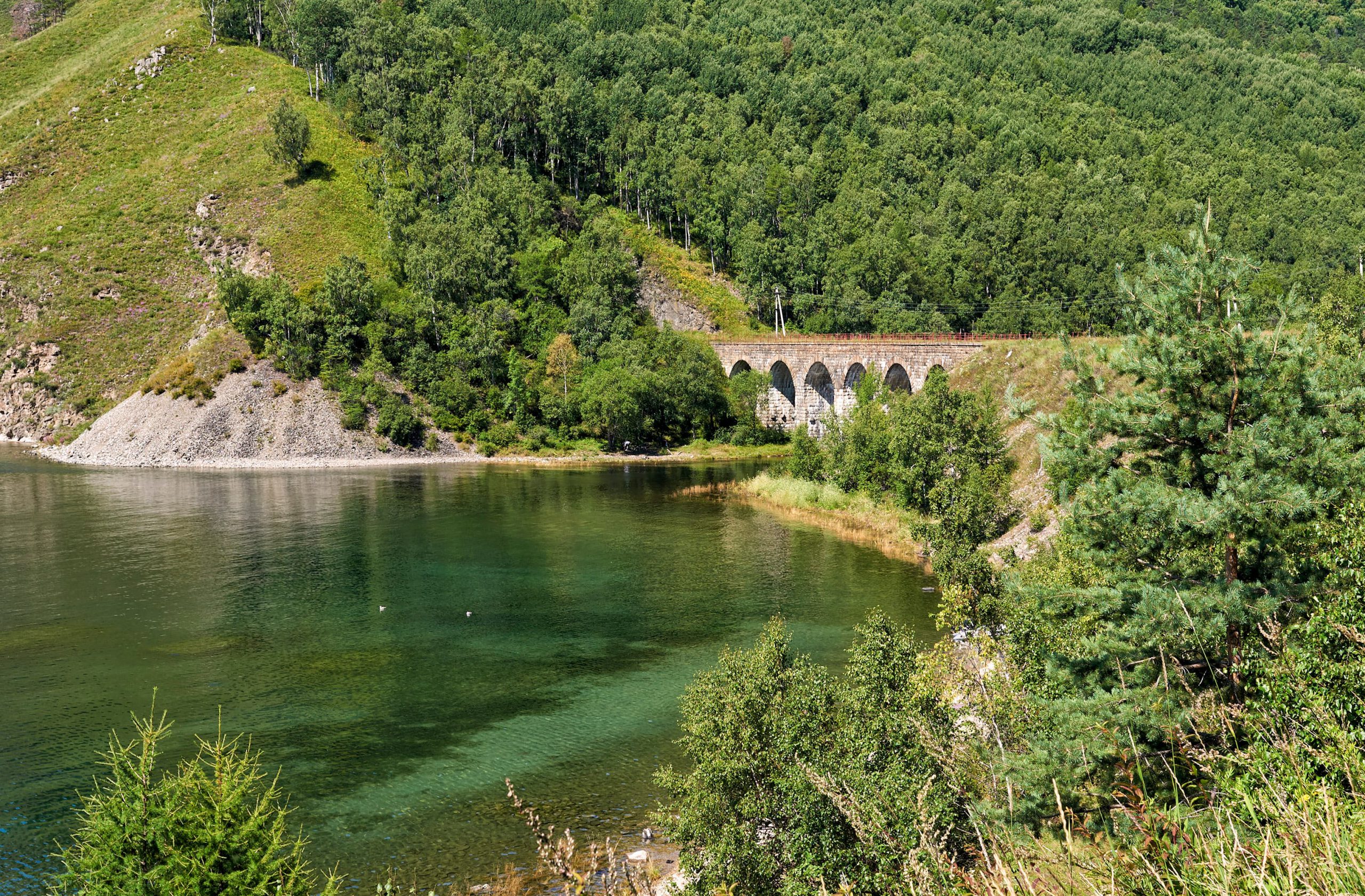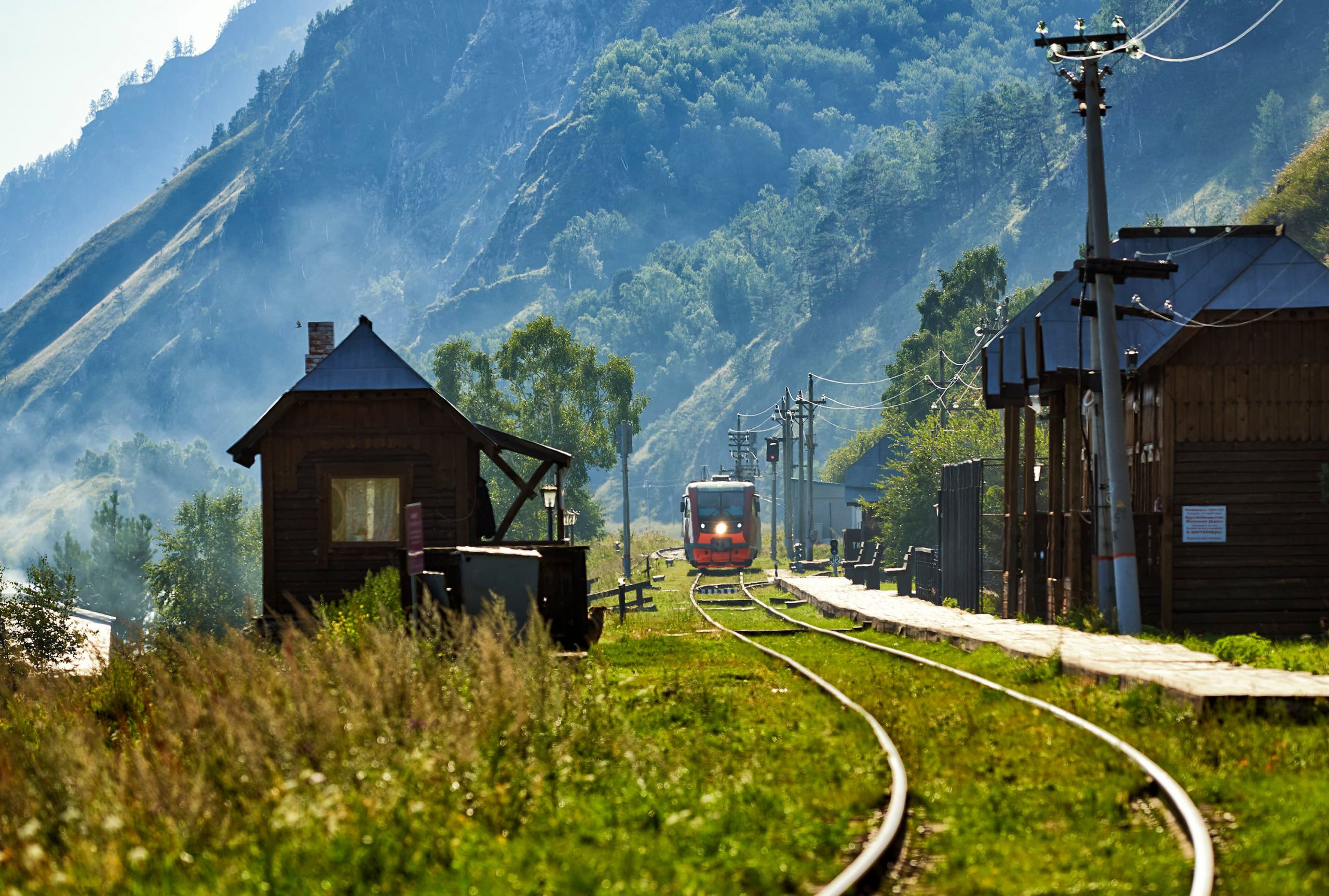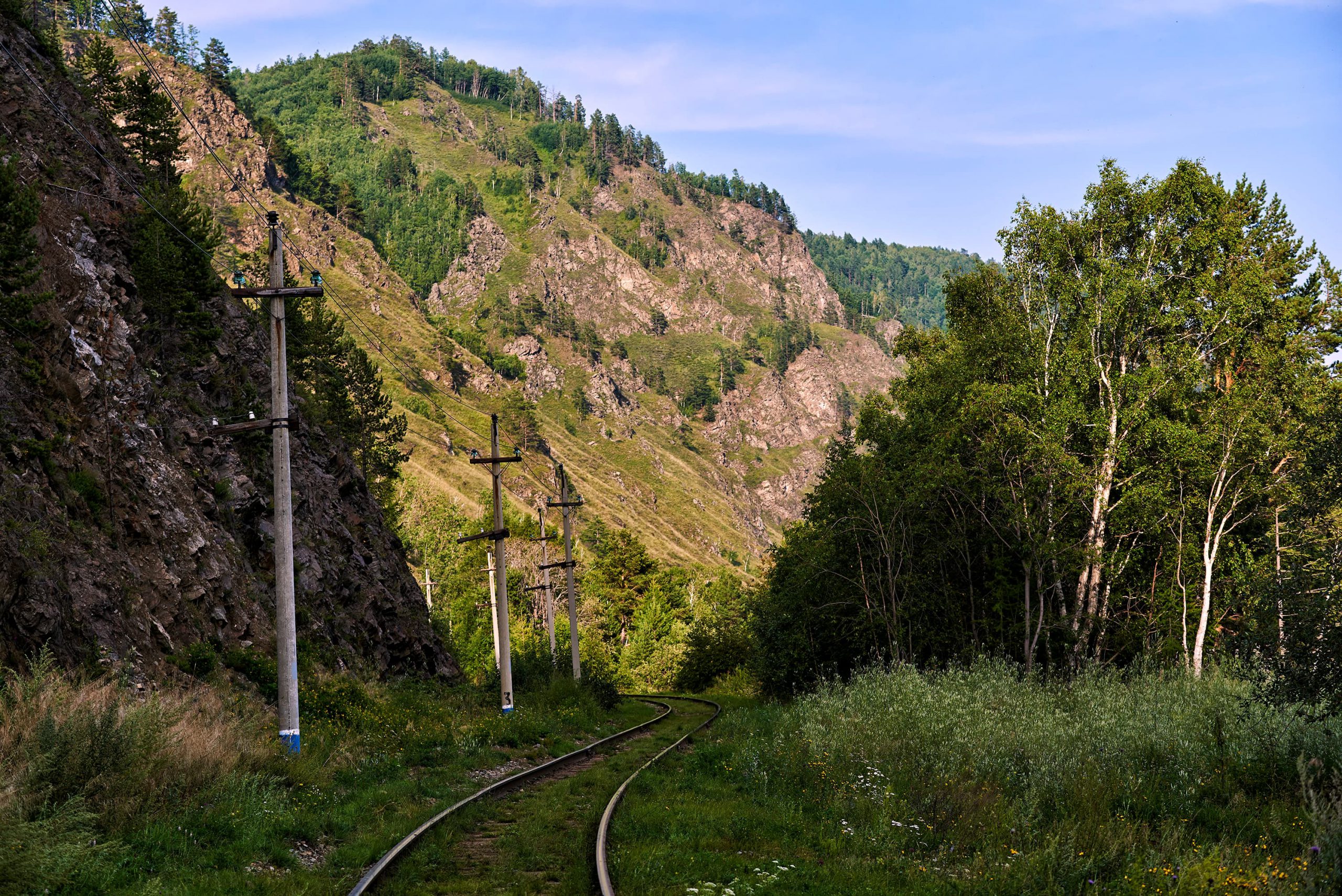Lake Baikal , Irkutsk
Lake Baikal is the freshwater lake with greatest volume in the world, containing roughly 20% of the world’s unfrozen surface fresh water.
Irkutsk is one of the few cities in Siberia, which managed to preserve its historic character and original layout. Its historic center was formed on the site of a wooden fortress, the remains of which were dismantled in 1790. Today, Irkutsk has about 700 monuments of wooden architecture.
Church of the Saviour is the only surviving building of the fortress. Together with the Epiphany Cathedral, they form the oldest architectural ensemble of Irkutsk.
Another prominent ensemble of the city is located on the waterfront of the Angara. It is formed by the monument to the founder of Trans-Siberian Railway – Alexander III, the local history museum with round corner towers made in the Moorish style, and Sibiryakov’s Palace, better known as the «White House», which served as the residence of the governors-general in 1838-1917.
Irkutsk is the sixth largest city in Siberia, the capital of the Irkutsk region. It is located in Eastern Siberia, 66 km to the west of Lake Baikal.
History
Irkutsk was founded in 1661. The settlement received the status of a town in 1686.
From the beginning of the 19 centuries, Siberia in general and Irkutsk in particular became the place where a lot of Russian officers and nobles were exiled for taking part in Decembrist uprising. At the end of the 19 centuries, about 30% of Irkutsk population consisted of exiles.
Lake Baikal
Lake Baikal is huge lake is the deepest and the oldest in the world and one of the clearest at the same time. It is located in only 63 km from Irkutsk. Baikal is home to more than 1700 species of plants and animals, 2/3 of which can be found nowhere else in the world. The reason for it is the clearest, transparent water enriched with oxygen
Average temperature
-19+19
Road transport
Located about 5200 km of Moscow.
Air transport
Moscow – Irkutsk – 6h00m
Date:
September 28, 2021



